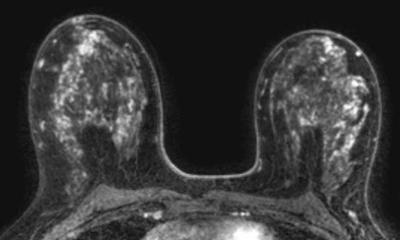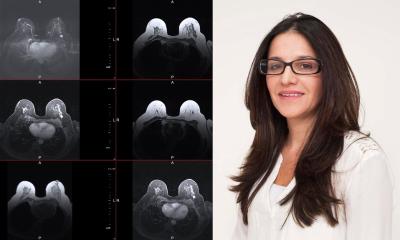News • Study on diagnostic accuracy of AB-MRI
Abbreviated MRI effectively detects cancer in dense breasts
Abbreviated breast MRI shortens exam time while retaining a high level of diagnostic accuracy of breast cancer in women with extremely dense breasts, according to new research.
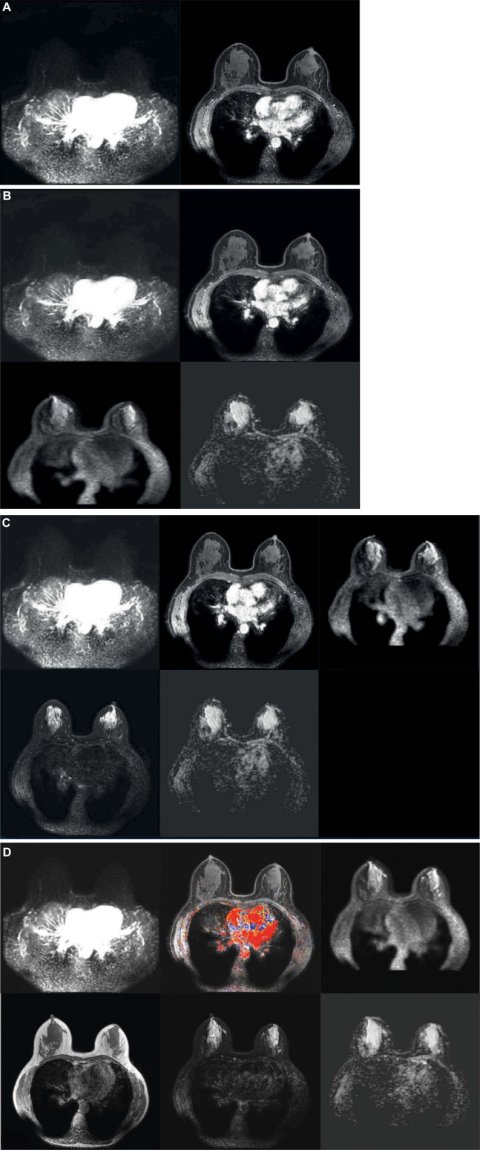
Image credit: Radiological Society of North America (RSNA)
This is according to an article published in Radiology, a journal of the Radiological Society of North America (RSNA).
Women with extremely dense breasts have a high proportion of dense glandular and fibrous tissue and very little fatty tissue. This can be a risk factor for breast cancer due to the similar appearance of tumors and dense breast tissue on mammograms. Supplemental MRI screening is generally recommended for women with extremely dense breasts. “Compared to mammography, breast MRI, whether abbreviated or full protocol, has a higher diagnostic accuracy for women with extremely dense breasts,” said study author Wouter B. Veldhuis, M.D., Ph.D., an associate professor in the Department of Radiology at the University Medical Center at Utrecht University in the Netherlands.
Although breast MRI has a high cancer detection rate, the additional costs and time associated with the procedure have impacted the widespread implementation of breast MRI in women with extremely dense breasts. A conventional full-protocol breast MRI can take an average of 30 to 35 minutes to complete, while an abbreviated breast MRI can take as little as 10 minutes. Reducing the scan time of full protocol breast MRI through abbreviated breast MRI may lower the cost of the procedure. Dr. Veldhuis and colleagues conducted a secondary analysis on a subset of MRI exams from the Netherlands-based Dense Tissue and Early Breast Neoplasm Screening (DENSE) Trial to assess the minimal protocol necessary to maintain high accuracy in detecting breast cancer.
Seven radiologists, each with a minimum of 16 years of experience, read the same set of screening breast MRI exams with 4 different sequences added incrementally, resulting in a total of 2,072 reads. After each MRI sequence, the radiologists provided a Breast Imaging Reporting and Data System (BI-RADS) score to determine the necessity for recall for further testing.
The researchers found that the abbreviated MRI protocol had comparable sensitivity and specificity to the full protocol MRI. Furthermore, the results of the study showed that the addition of more sequences did not provide any additional diagnostic information for making a recall or no-recall decision.
Recommended article
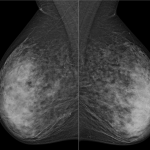
Article • Alternative for mammography
Breast cancer screening: Does the future belong to the abbreviated MRI?
Is mammography still the best method for breast cancer screening? For a number of breast cancers, the latest scientific findings suggest otherwise. For more than a decade, Professor Christiane Kuhl MD, Director of the Clinic for Diagnostic and Interventional Radiology at the University Hospital RWTH Aachen, has researched the use of MRI in breast cancer screening.
Both scan and reading times of the abbreviated MRIs were dramatically reduced, resulting in up to 80% shorter scan times and 50% shorter pooled reading times. The shortest scan time was under five minutes. “The shortest abbreviated protocol demonstrated good performance, comparable to that of the full multiparametric protocol, while being up to four times faster to acquire and up to two times faster to read,” Dr. Veldhuis noted.
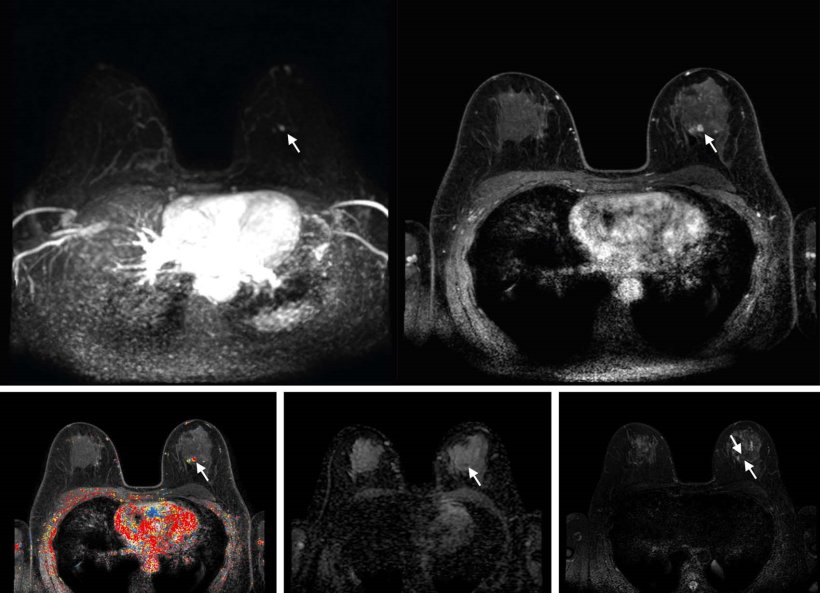
Image credit: Radiological Society of North America (RSNA)
The researchers note that the shorter reading and scan times of abbreviated breast MRI could enable more women to be screened within a shorter timeframe while also making it a more accessible and comfortable experience for patients. “Reducing the examination time and noise levels potentially improves patient experience,” Dr. Veldhuis said. “Moreover, shorter reading and scan times may allow implementation of MRI in national screening programs making it available for all women with extremely dense breasts.”
Source: Radiological Society of North America
21.05.2025



